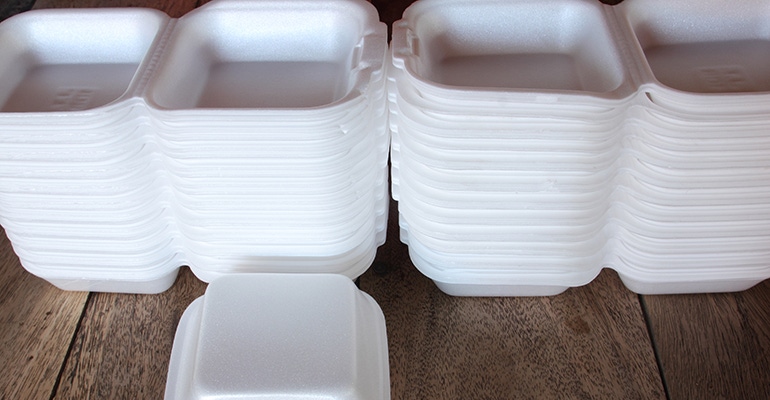Each day at 5 p.m. we collect the five top food and supplement headlines of the day, making it easy for you to catch up on today's most important natural products industry news.
December 2, 2019

Vancouver says no more foam food containers
Exactly one year after New York City's foam ban went into effect, the city of Vancouver has decided to ban all disposable cups and takeout food containers made of foam. Effective Jan. 1, 2020, the ban will impact all restaurants, grocery stores, food courts and special events. This foam ban is just one of the actions Vancouver is taking to reduce single-use item waste in support of its zero-waste goal for 2040, which includes banning plastic and compostable plastic straws. Read more at Treehugger...
Nestle to use Nutri-Score nutrition-labeling in Europe
Starting in the first half of 2020, Nestle will introduce a labeling system on more than 5,000 products in five European countries. The color-coded system, Nutri-Score rates food from Green and the letter A, for healthier products, to red and the letter E, for less healthy products. The program, which rolls out to Austria, Belgium, France, Germany and Switzerland, will appear on products like Nesquik and KitKat. Read more at Reuters...
Brown bananas and squishy avocados no more? Food tech developed in Chicago and elsewhere could keep your produce from going bad.
Chicago-based Hazel Technologies, part of the startup innovation hub on the Illinois Institute of Technology campus, has developed a product that extends shelf life of produce by using small sachets to slow the food's response to ethylene, the chemical cause of decay. Hazel, which now focuses on the world's largest growers and by preventing food waste at the source, may come out with a consumer product next. Technology to extend shelf life isn't new, but innovation and an increase in venture capital in the area is expanding options, including easy-to-use Hazel sachets and its in-the-works anti-microbial liners for berry packages. Read more at Chicago Tribune...
Cosmic Crisp apple that can reportedly last for a year to hit US stores
A new Washington state apple variety that can reportedly last longer than a year in the refrigerator is expected to hit grocery stores this week. The launch has reportedly cost $10 million, but the impact of sales is not expected to be felt by farmers of the fruit for another two to three years. The apple was developed at Washington State University's fruit tree breeding program using a technique named "cross-hybridization" and not through genetic modification. Read more at The Guardian...
Smaller loaves of bread are on the rise
New shopper demands for smaller bread loaves is driving bread companies and grocery-store bakeries to sell half loaves. The smaller loaf meets the needs of people who live alone, which today comprises nearly one-third of U.S. households, as well as those cutting back on carbs and gluten. A younger generation focused on wasting less food likely will push more of the bread industry to creating these mini loaves in coming years. Read more at The Wall Street Journal...
You May Also Like


